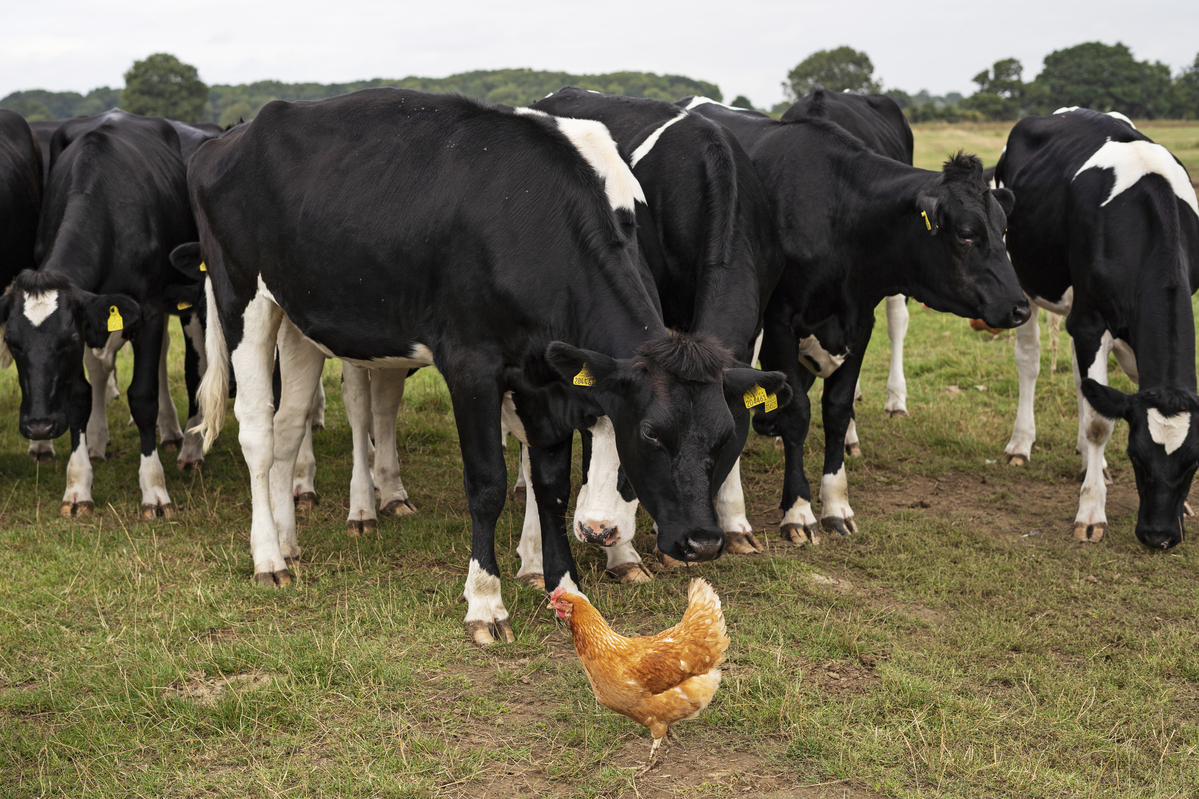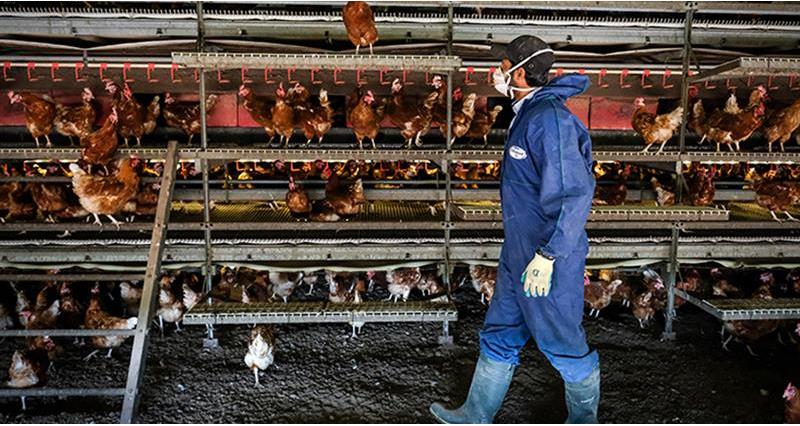Avian influenza H5N1 has been confirmed in captive birds, poultry and wild birds in England, Wales and Scotland. When cases are confirmed, the government will impose disease control zones around the infected premises.
Mandatory housing measures for all poultry and captive birds were lifted from Tuesday 18 April 2023. Following the reduction in risk level to 'low' for all poultry, the nationwide Avian Influenza Prevention Zone (AIPZ) in place across Great Britain was lifted at noon on 4 July 2023. A ban on poultry gatherings remains in place.
The NFU urges all poultry keepers to remain vigilant for signs of disease and to maintain stringent biosecurity measures.
Poultry keepers (even if they just have one hen in the garden) should check whether they are within an avian influenza disease control zone by using the APHA’s interactive map as restrictions will apply.
You can also use our AI case finder to find current and lifted cases of avian influenza at any particular location. It is being updated regularly with information on the latest cases, including the restrictions that apply in the Disease Control Zones around the infected premises.
What if I am in a disease control zone?
Additional restrictions apply to all poultry keepers within disease control zones. Licences may be required for movements on and off sites that have poultry or captive birds on them. If any part of a holding is within a disease control zone then the whole holding is considered to be within that disease control zone. Licences may be required for movements of livestock, pigs and horses on or off a holding within a disease control zone that also has poultry on it, even if it’s just a few hens in the garden.
A general licence has been issued for the movement of mammals (including livestock) from or to premises in the Protection or Surveillance Zone in England or Wales where poultry and other captive birds are kept (please note that any mammals moved under this licence must have no access to and been kept separate from poultry and any other captive birds for a minimum of 21 days). In order to use the general licence, you must follow all of the requirements listed within the licence. The full list of general licences can be found on the government website.
If there are no poultry or captive birds on both the holding where the movement starts and the holding where it ends then movement licences are not required (unless either site is under individual restriction).
- You can find out if you are in a disease control zone by using the APHA’s interactive map.
- Get information on the restrictions that apply in avian influenza disease control zones.
Consequences of avian influenza – what will happen if my birds get AI?
In the event of avian influenza being confirmed in your flock, any surviving birds will be culled. You only receive compensation from the government for any healthy birds (birds showing no signs or symptoms of the disease at the time of culling) at the value of the birds immediately before culling.
Your holding will also be placed under strict restrictions, affecting all movements on and off the site, including but not limited to people, livestock, bedding, feed and manure.
As the infected premises, you would also be responsible for carrying out and paying for secondary cleansing and disinfection which may have significant financial implications.
This is also linked to when the UK can regain official disease-free status for avian influenza from the World Organisation for Animal Health (OIE). Not being able to carry out secondary cleansing and disinfection or a delay in completion can have serious implications on our international trade in poultry meat, eggs and breeding chicks.
What are the risks of avian influenza to humans?
The UK Health Security Agency (UKHSA) has said that the risk to the general public’s health is very low and the Food Standards Agency has said that avian influenza poses a very low food safety risk for UK consumers. Properly cooked poultry and poultry products are safe to eat.
All the information relating to the latest confirmed cases of AI in the UK plus guidance and advice for poultry keepers can be found in our AI hub.
If you can’t find the information you need on this page, please contact NFU CallFirst on 0370 845 8458.

